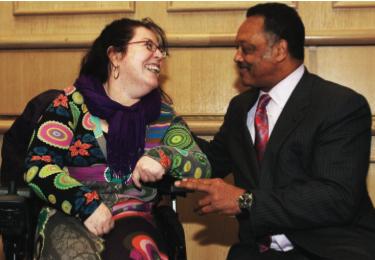My body politic - part two

The second part of Politico's interview with Seanad candidate Rosaleen McDonagh. By Colin Murphy.
Rosaleen McDonagh's signature issue is the recognition of Travellers as a distinct ethnic group. She falters when talking about this. "It's very emotional for me."
She justifies such recognition, at first, in terms of its ends: "It would change our status; it would recognise all the wrong doings against Travellers; we would be afforded affirmative action programmes in education, employment, and accommodation."
She references Australia's Aborigines and the New Zealand Maori as examples of indigenous minorities whose status was boosted substantially by their recognition as distinct ethnic groups. Irish identity, she says, is both "very broad" and "very fragile". "We're very insecure about it – this is very evident in our literature and at contemporary moments like this."
Irish identity, she thinks, could be strengthened by a recognition that it could incorporate the identity of a distinct ethnic group. "We need to acknowledge that the Irish are not homogenous."
"Settled people try to intellectualise the ethnicity debate. For Travellers, it's an emotional thing. I believe we are different. I know I'm not settled. I know I couldn't be – even if I wanted to be. It's not in my genes or my makeup.
"This debate is for Irish people as well, not only for Travellers. Travellers say: 'Look at what you made us'. Settled people say: 'You made your bed, now lie in it'. There is real frustration on the part of settled people, and real anger on the part of Travellers. We need to find a way to heal the racism and the hurt that many Travellers have experienced before we can move the debate on to a more objective plane."
This is her third tilt at the Seanad. She has, at best, an outside chance, and would probably need to quadruple her vote. She took 684 first preferences in 2007, placing her fifth in the field. (The quota was 4,230.) In 2002, when she first ran, she took 773 first preferences, and placed seventh.
The general election was unlucky for her: had Labour managed their vote better in Dun Laoghaire, and 150 or so of Eamon Gilmore's votes gone to Ivana Bacik, Bacik would have taken the final seat, in place of Richard Boyd-Barrett. (Gilmore was over quota on the first count, and could have easily afforded them.) That would have freed up 3,000 or so votes on the Trinity panel for the Seanad – votes that had previously gone to a left-wing, liberal woman. Instead, Bacik is running for the Seanad again, along with fellow incumbent David Norris. The election of Shane Ross to the Dáil does introduce a wild card, however: he took just under a third of all votes for the Trinity panel in 2007, and these will have to find a new home.
If she isn't elected? "I'll be disappointed but I'll feel I laid down a marker for other Travellers. It was a risk, but if we don't take risks, our community will never move on."
In the meantime, she brings a wry humour to her campaign. "Our community used ask settled people for money. Now I'm asking them to vote for me."
Her campaign is complicated by nervousness about media appearances. Her cerebral palsy gives her a mild speech impediment, but it can worsen later in the day, or when she is nervous, and she can be difficult to understand at times. She has been reluctant to appear on Tonight with Vincent Browne; when Pat Kenny hosted a Seanad debate recently, he pre-recorded a short interview with McDonagh (at her request), with the result that she was marginal to the main debate.
She is nervous, too, about representing her community. "I have a lot of power other Travellers don't have," she says, as we finish talking, in a café in Temple Bar. "I can write; I can come in here, and nobody will bother me. Please don't let me put down my own."
